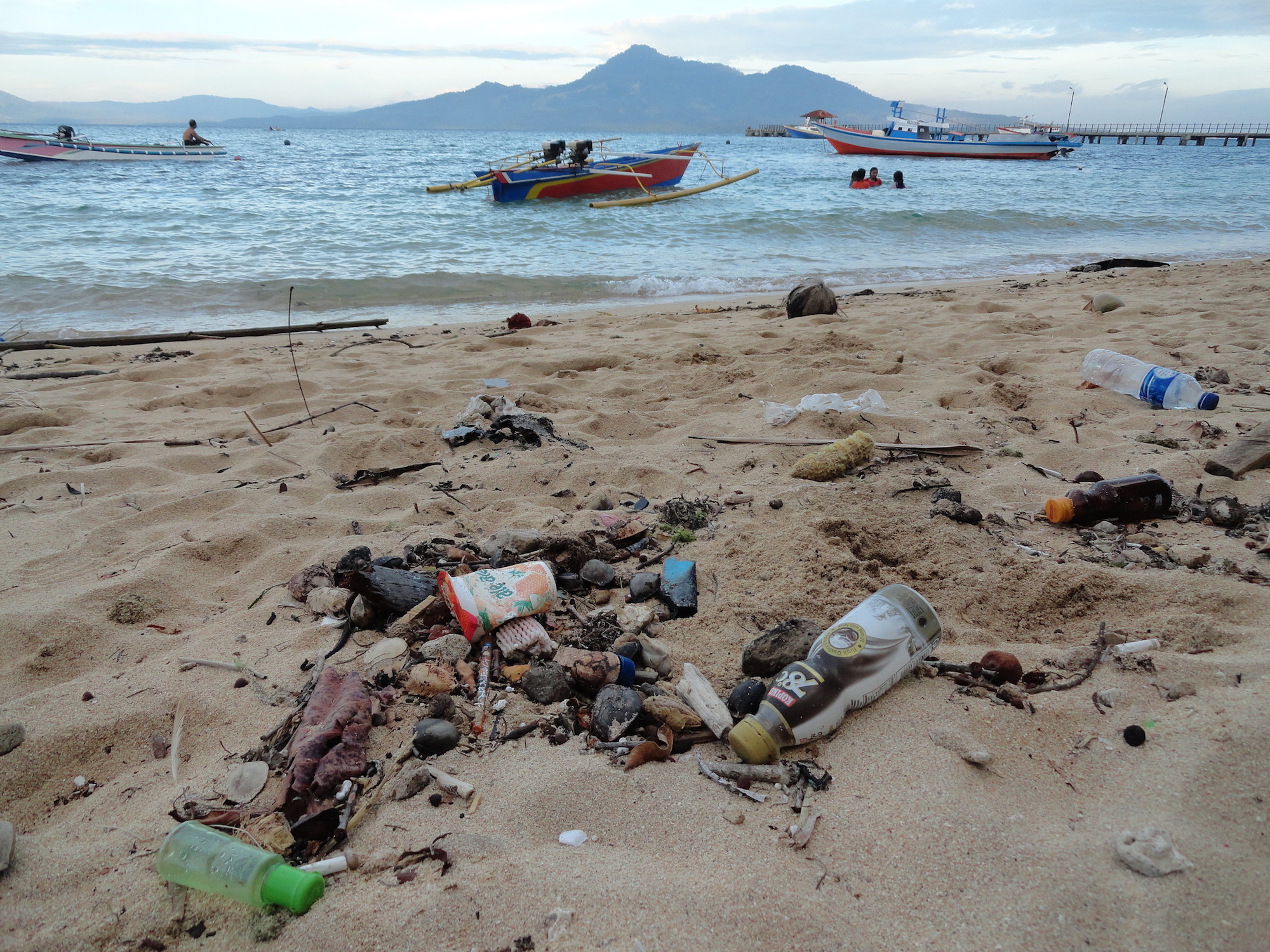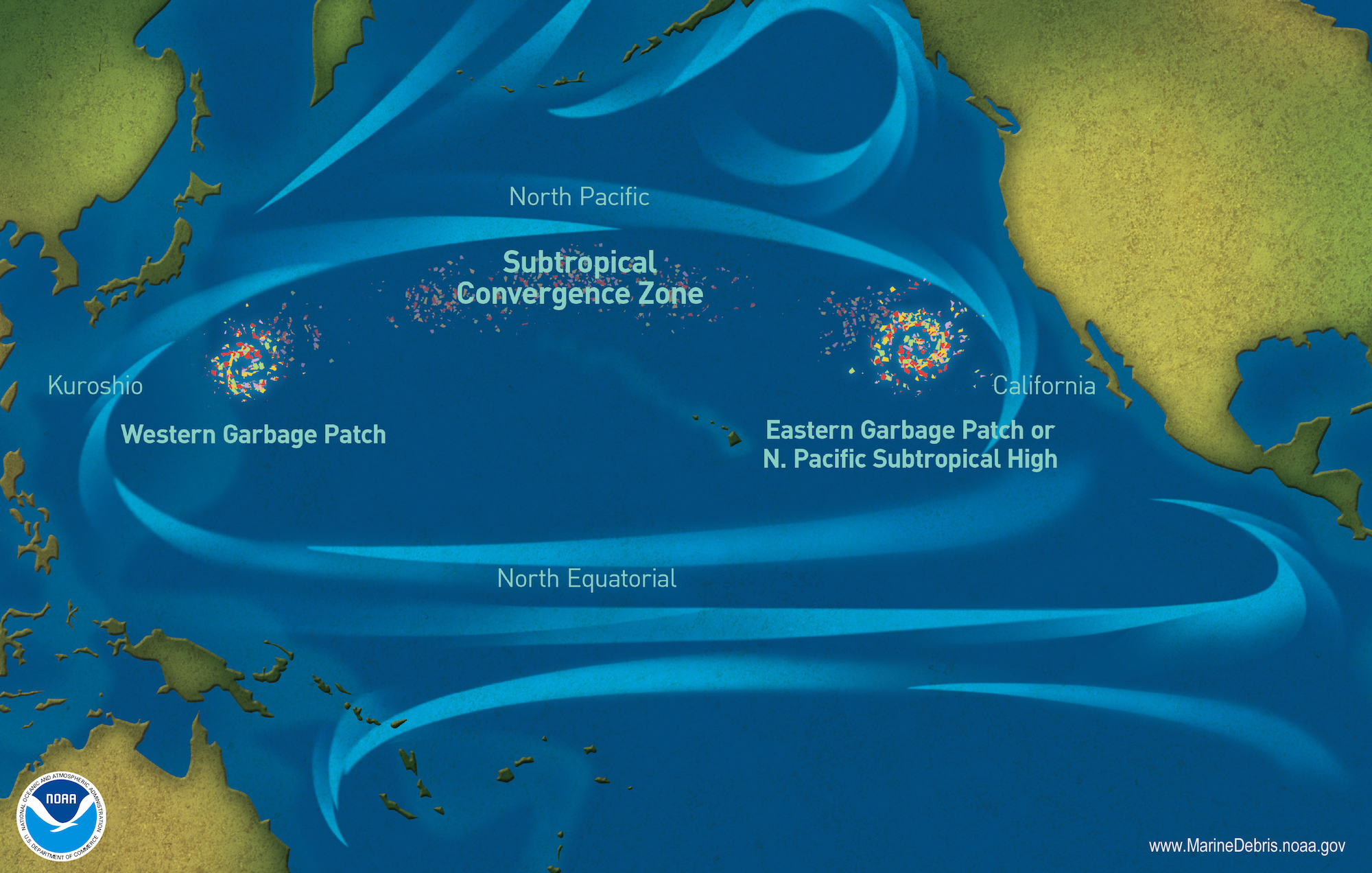
Plastics are cheap, durable, lightweight, and resistant to decay, all qualities which have made them ubiquitous in packaging. However, those same characteristics have contributed to an environmental catastrophe. Each year, according to the Ocean Conservancy, eight million metric tons of plastic enter marine environments. As the material ages, it never completely goes away. Instead, it breaks down into smaller and smaller pieces, creating microscopic pollutants known as microplastics.
Significant research on ocean plastics is happening at many different institutions and universities. At Pratt, a team of researchers brings a unique perspective by drawing from research on material degradation in visual art and concentrating on the Global South. The industrial production of the plastic industry is concentrated in Asia, Latin America, and Africa, and many of the waterways in these regions are heavily contaminated by plastic waste.
The “Material Degradation and its Impact in the Global South” project is led by Cisco Bradley, Associate Professor of Social Science and Cultural Studies; Macarena Gómez-Barris, Chair of Social Science and Cultural Studies; Cindie Kehlet, Professor of Math and Science; and Helio Takai, Interim Dean of the School of Liberal Arts and Sciences. Their work on collecting and analyzing data on this ecological crisis is part of Pratt’s Global South Center (GSC), established in 2016 by its Director Gómez-Barris and supported by the Pratt Research Accelerator. GSC brings together faculty from around campus to engage in timely issues like social inequality, environmental distress, and the potential for creativity in proposing solutions to global concerns.
“That is our strength at Pratt,” Bradley said. “We have a rare combination of faculty with varied interests that intersect just right for us to work together. So, we are able to draw from a plethora of approaches that range from chemistry and physics to history, sociology, anthropology, and many common issues including ocean plastics, coastal resilience, human migrations, environmental displacement, and global North-South and South-South relations.”
Through research projects, symposia, and collaborative learning and teaching, GSC recognizes marginalization and exclusion from global centers of power, including geographic regions, social and individual narratives, and dominant ways of organizing life. Its first years of research and programming concentrated on the decolonization of water, transmigration across Southern Europe and the Americas, and repression and resistance in the Middle and Far East, as well as the recent rise in authoritarianism and gender inequities. The studies on ocean plastics deepen this ongoing understanding of a range of pressing issues impacting the Global South.

“In the Global North, there’s a practice of resource extraction from the Global South,” Gómez-Barris said. “The waterways by these Global South factories get polluted producing plastic for the Global North. How do we reduce that waste and think instead about more sustainable ecologies? It’s important to understand how communities of color in the Global North and many nations of the Global South disproportionately suffer from environmental injustice.”
Gómez-Barris previously researched riverways for her book The Extractive Zone (2017), which explored the dramatic impact of environmental degradation on the Global South due to waste. She is now expanding that research to coastlines. “The oceans unite us,” she said. “The ocean perspective has the ability for us to think about the interconnectedness of the globe. The future of research is about interdisciplinary collaborative models, rather than one that is centered on the expert individual.”
Because of the complex causes behind this ecological problem, an interdisciplinary team is vital in examining both the science behind plastic degradation and its societal repercussions. Being based at an art and design school, GSC has access to specialized research on the degradation of plastics as well as key expertise on its social impact. The project involves the Center for Research of Art and Design Materials, opened by the Department of Mathematics and Science in 2018.
One of the Center’s key research interests is how polymeric materials—like synthetic plastics—degrade under different conditions. Visual artists began using these materials in the 1950s; decades later, studying their aging is crucial to modern and contemporary art conservation. That same knowledge can, in turn, inform understanding about the degradation and chemical properties of non-biodegradable polymers breaking down over time in diverse marine environments, from freshwater and brackish rivers to oceanic saltwater.
For the “Material Degradation” initiative, researchers are focusing on several Global South sites and the environmental, scientific, and economic factors contributing to the clustering of plastic waste in these regions. One is the Great Pacific Garbage Patch—a gyre of marine debris in the North Pacific Ocean—and how it affects Asia and Latin America. Another is the Yangtze River in China. The World Economic Forum reported in 2018 that the Yangtze is one of the 10 river systems that collectively carry 90 percent of the plastic that ends up in the ocean.
From these ongoing studies, the team will gather data on the formation of microplastics, the structural deterioration of discarded materials, and how the mass production of single-use plastics has impacted the people who live along these waterways. As they collaborate with knowledge producers, advocates, and scientists in the Global South, these Pratt researchers will seek new ways to intervene in a major worldwide problem: the inequity of waste. The team looks forward to publishing together, seeking new partnerships, producing a major conference on the topic, as well as finding innovative ways to impact policy on plastic in the ocean.
Images: Garbage on Pantai Pangalisang in Pulau Bunaken, Indonesia (photo by Fabio Achilli/Flickr); Map of marine debris accumulation locations in the North Pacific Ocean (courtesy NOAA/Wikimedia)